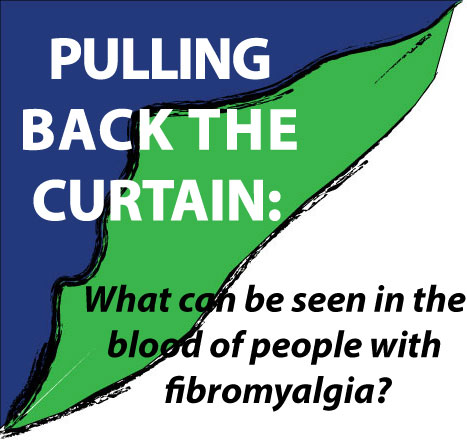FM: A Real Medical Disease

Fibromyalgia: A Real Medical Disease
Bruce S. Gillis, MD, MPH
For decades, debate has raged over whether fibromyalgia is a real medical disease. Some have classified fibromyalgia as being nothing more than a collection of complaints and have defined it as a “syndrome.” When patients have seen their doctors for complaints of chronic pain, diffuse muscle tenderness, severe fatigue, insomnia and other unbearable symptoms, they all too often have been labeled as depressed, hysterical, neurotic and/or hypochondriacal and been told that it was “in their heads.”
Why have doctors been unable to recognize fibromyalgia as a real medical condition? It was because there was a giant hurdle to acceptance due to the lack of any objective evidence of a specific medical pathway to explain their symptoms. And these patient complaints led to a whole host of labels besides fibromyalgia. They have included fibrositis, chronic fatigue syndrome, fibromyositis, myodysneuria and numero us others. Doctors wanted an answer for their patients, their patients were seeking an explanation, but only theories and hypotheses were previously available.
us others. Doctors wanted an answer for their patients, their patients were seeking an explanation, but only theories and hypotheses were previously available.
As a physician, I also had been a skeptic when it came to considering fibromyalgia as being a disease. Adding to these discussions were the constant debates among physicians as to whether fibromyalgia should be considered a rheumatologic, neurologic or psychiatric illness, or perhaps it had a relationship to a different medical specialty altogether.
As part of a research program at the University of Illinois College of Medicine at Chicago (UIC), I decided to see if there was something unique about fibromyalgia patients. I felt there might be one common underlying pathway that could account for the wide-ranging collection of problems fibromyalgia patients reported, which ranged from brain and nervous system issues to muscle and joint pain, digestive troubles, poor sleep, severe fatigue, psychological issues and more. An underlying immune system disturbance seemed to be the most likely explanation.
Consequently, I and my fellow researchers at UIC decided to study a small group of fibromyalgia patients and analyze their immune system functions, after which they were compared to healthy patients/controls. The result was the discovery of a major set of differences in cell-mediated immunity in the fibromyalgia group versus the healthy patients. And this discovery was opposite to what was anticipated. Specifically, while fibromyalgia patients are often considered to be “hyper/overactive responders,” we identified that the fibromyalgia patients had a depressed immune system and, therefore, were more susceptible.
In light of our findings, we worked with UIC biostatisticians to determine how many patients we would need to achieve a statistically significant study. That number was then increased by nearly 40 percent. We thereafter spent two years identifying and testing patients with fibromyalgia who met the American College of Rheumatology 1990 approved diagnostic criteria. We then compared them to matched healthy patients. The peer-reviewed results, which were published in the December 2012 issue of BMC Clinical Pathology, showed unique immune system patterns in fibromyalgia patients. The latter findings were dramatic.
The results that were uncovered via our research have finally been able to “tear back the curtain” and reveal that there is a specific pathway in fibromyalgia – and it defines fibromyalgia as an immunologic medical disorder. This disorder relates to the production of protein molecules called cytokines by a certain type of white blood cell. And the identification of this pathway has created the first objective test capable of making the diagnosis of fibromyalgia.
This test, which is being offered by the University of Illinois College of Medicine Department of Pathology at Chicago and the EpicGenetics Corporation, means that there is a now an objective test capable of diagnosing fibromyalgia. This test, called The FM/a® Test, is a quick, simple blood test with high sensitivity comparable to an HIV blood test. The discovery of this test led to us receiving an award from the prestigious American Association of Clinical Chemistry. During the presentation of this award, we were labeled the “best new immunologic test of 2012.”
Special agreement has been made for NFMCPA members to receive a $50 discount on the cost of this test. Please go to http://www.fmcpaware.org/nfmcpa-membership-2.html and become a member. When purchasing this test, please use the code NFMCPA. Your membership with the NFMCPA will be validated for the $50 discount.
Currently, fibromyalgia is estimated to affect 12-20+ million individuals in the United States, which is commensurate to the number of people in the United States with cancer. Scientific studies have documented that fibromyalgia patients often spend tens of thousands of dollars and many painful years seeking a diagnosis. With this new science, patients and their doctors can now receive the answers they seek and need in a matter of days, and for a fraction of the cost.
We certainly understand the importance of legitimizing fibromyalgia as a disease unto itself in the minds of physicians and providing the benefit of having an objective test available to patients and medical science. Not accepting fibromyalgia as a true medical condition has been a blemish on the thoughts of healthcare providers, as well as members of the public who previously dismissed fibromyalgia as being “bogus,” unauthentic and merely a collection of exaggerated complaints. Now, based upon our findings, it no longer is a contrived health problem.
EpicGenetics has as a Scientific Advisory Board which is composed of worldwide experts from Harvard, UCLA, Cornell, UIC and other top research institutions which supports our findings and continuing research into fibromyalgia and other diseases. With our newly acquired knowledge, we know it will only be a matter of time before the triggering factors and causes of fibromyalgia are uncovered and the best therapies are proven. Exactly why cytokines produced by peripheral blood mononuclear cells are so compromised in fibromyalgia is the next question that ongoing research is expected to answer.
“The significance of this breakthrough will change the way the medical community views fibromyalgia, as well as how doctors diagnose, and ultimately manage patients with the condition,” said Daniel J. Wallace, MD, FACP, FACR, associate director of the Rheumatology Fellowship Program at Cedars-Sinai Medical Center, clinical professor at the David Geffen School of Medicine at UCLA, and managing physician of the EpicGenetics Clinical Testing Program. “This discovery provides hope and validation for millions of fibromyalgia sufferers.”
Anyone with fibromyalgia symptoms can now request a test by going to www.TheFMTest.com and completing a simple questionnaire to determine whether they qualify for the test. Many insurance companies will pay for this test just like any other. From there, arrangements for the test can be made either through a patient’s healthcare provider, or independently by Daniel Wallace, MD, Clinical Professor at the David Geffen School of Medicine at UCLA and managing physician of the EpicGenetics Clinical Testing Program. The $744 cost of this test includes arranging for the test at a physician’s office or at independent blood draw stations or via mobile phlebotomists. Assistance to achieve reimbursement by health insurance providers is also available.
Editorial note: A second study on the FM/a test was reported at the 2013 American College of Rheumatology meeting. That scientific update can be found by clicking here.
For more information about The FM/a® Test or EpicGenetics, please visit www.TheFMTest.com and www.epicgtx.com.





